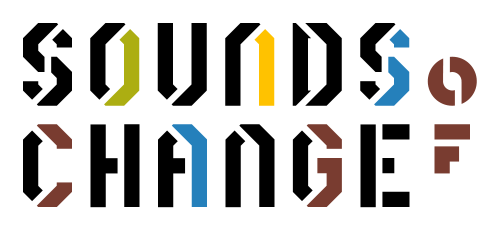
The Sounds of Change approach
This method is the result of collaboration within our team of professional music therapists, music teachers, musicians and trauma specialists and 12 years of experience in working with traumatized and disadvantaged communities in various places around the world.
The music techniques and exercises from the Sounds of Change methodology are developed to fit within PSS (psycho social support) and education programs, with the focus on creating a safe space through music, working with and without spoken language, connecting with different cultures and working in a rapidly changing environment. The PSS and education programs we support with our training work to reduce stress, allowing both our trainees and the people they work with to release stress, connect with each other and learn something new that can enrich their lives. This is in recognition of the fact that both our trainees and the people they work with often find themselves in challenging living and working environments. The tools that we pass on and train are therefore also resources that participants of our training can use for self-care.
Working in a trauma-sensitive manner is essential in our working method, which is why we have adopted the Trauma International working method in our way of working. To work trauma-sensitively and reduce stress levels, four core elements are essential. Our working method focuses mainly on those elements:
Connection
Movement
Predictability
Giving back control
Connection and movement are often common elements when making music. Using a structured and predictable approach is something our method provides. In addition, giving (back) control, or the feeling of control, is something we focus on with our method. The latter is not self-evident and easy to facilitate, but it does involve a lot of personal and social development and growth when people are given that space.
The focus of our training is not on learning technically good musical skills, but on using musical elements as a tool for social and personal development and change.
The basic principles on which our trainers work and our working method is based are a sense of belonging, safety, solution orientation, culture and trauma sensitivity and resilience.
Sound of Change training methodology
Our training program is not a 'fixed' intervention or printed program. We make this distinction consciously, to stimulate as much flexibility as possible of our participants and to invite them to use their own creativity and creative power in giving (series of) PSS, and educational sessions and the further and new development thereof.
The training consists of 5 parts:
● Content - musical activities, games, exercises
● Structure - 6 step workshop and session design system
● Theory - practical knowledge about trauma and basics of music therapy
● Facilitation skills - tools, exercises, mindset
● Self care - Specific and specialized self care exercises
Content
We offer many different musical exercises, interactive activities and facilitation tools. The content can be used for different target groups, ranging from children to adults and from working with traumatized people to working in regular education. All content fits easily into existing educational / PSS programmes.
The exercises and games in this library can be experienced in a live setting as well as online, using the pre-recorded videos in our online library.
Magical Suitcase
These suitcases are our trainees’ toolboxes, enabling both trainees and the young people they work with, to make music with real musical instruments
The suitcases are filled with a range of percussive instruments such as boomwhackers, chimes, shakers, drumsticks, a frame drum, as well as a darbuka, a melodica, and even a ukulele.
Hybrid online manual
This manual is hybrid because it is online and therefore we are able to adjust and add material as soon as there is an update. We are also able to create tailor-made manuals for any team we work with, according to the specific needs and experience-level of the users.


